
 I thought it might be nice to have a European thread to share our experiences and support each other when needed. I also like the idea of somewhere to ask about meds / products that we have access to that are different to the US and UK. I'm guessing even hatching eggs would possibly be doable within Europe!
I thought it might be nice to have a European thread to share our experiences and support each other when needed. I also like the idea of somewhere to ask about meds / products that we have access to that are different to the US and UK. I'm guessing even hatching eggs would possibly be doable within Europe!@Shadrach
@Cragg Klefor
@Pokka
@Henrik Petersson
@Debby in france
I'll add tags as I spot people - please do the same.
Edited to add product information. Please tag me if you post information from your country so that this list can stay edited and up to date - thank you.:
SPAIN
I'll make a start then.
What I can get here for Coccidia is Coccivex.
I know they distribute to France, Portugal and Spain.
Vasaline is available here but usually at chemists.
Matacam is the analgesic the vets use here. A further advantage is it's an anti inflammatory.
Stockholm Hoof Tar or Pine Tar is used a lot here for wounds.
Most anti biotics are available here and afaik in Portugal and Italy, not sure about France.
If and when others contribute with drug names they can get perhaps we could make a list with the companies web site and/or where to buy.
I have to check, but mine is called Flubenol. I have a big can of it and I believe it is mainly for pigs in a powder form, but safe for chickens.
That's what i can get here but as you mention, it's hard to get small amounts. I have a 5kg box.
I guess I got lucky with my 600gr package.
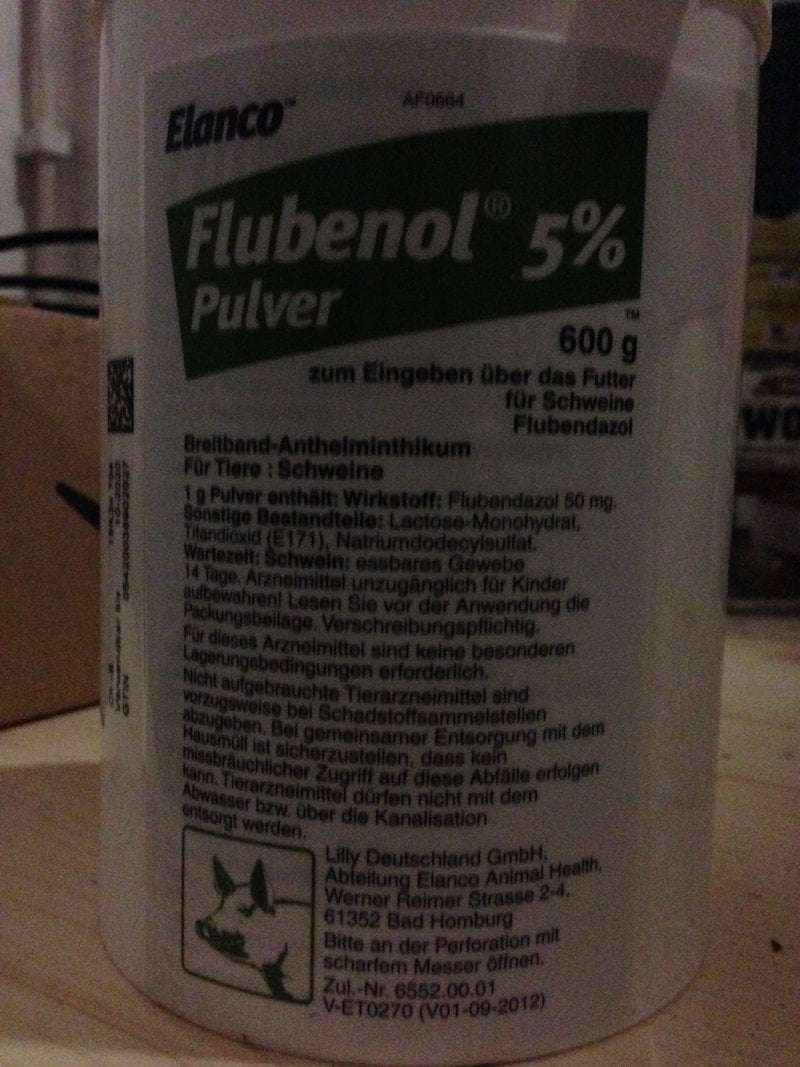
In Germany, it is hard to get anything medication wise without going to the apothecary or vet. Even dewormer for cats/dogs is officially only available at the vet or with a prescription. There are some online stores, but those are often in the Netherlands and ship to Germany.
Here is my list of advice for Germany. If anyone would like to add anything, feel free.
First of all, these are all from my personal experiece, I cannot guarantee the accuracy 100% and the list is not complete.
Legal
Chickens must be registered with your “Veterinäramt”. For us it was free. They will give you a registration number and ask how many (approximately, since chicken math is complicated) chickens you have.
“Tierseuchenkasse”: This is a fund that will help in cases of epidemics, disposal of cadavers, etc. It is mainly meant for large livestock or industrial chicken keeping. These are organized by state and dues are quite low if you are keeping a small flock. Maybe couple of cents per chicken and a minimum due of €10 per year.
The “Bauamt” will let you know if you are allowed to keep chickens where you live. In general, if you live in a village where livestock is typical, you should be allowed to keep chickens. In mixed (industrial and residential) areas, it should also be ok. If it is a residential only area with mainly new developments, it could be prohibited. To be sure, check with your “Bauamt”.
Chickens MUST be vaccinated against Newcastle's Disease. Most “Geflügelzuchtvereine” (local poultry associations) will offer the 3-monthly vaccination per drinking water. They will set a certain day/time to pick it up. The vaccination must be drunken within 2 hours of when they mix it, so you must plan accordingly.
Another option is to go through your vet and get shots. This is a vaccination that is good for a year.
Getting the shots was expensive for me the first year, since I was alone bought the whole pack (€60). My vet had just opened her practice and I was her first chicken keeper. She also does horses, so in time she found more chicken keepers and now I only pay a couple of Euros per chicken. The drinking water vaccination should also be very cheap through the associations, since costs are shared.
Finding a veterinarian that is chicken savvy is not easy. If you do your research, you might be able to help them along. If you find one that knows chickens, count yourself very lucky. My vet is willing to treat my chickens and research treatment and medication. She is also open to my suggestions and I am very grateful to have her.
Medical
Antiobiotics:
Baytril
Baycox
Tylan/Tylosin/Tylosucit (no waiting period for eggs)
Pain Reliever/Anti-Inflammatory:
Metacam
Aspirin (5-10mg/kg)
Vaccination for chicks coccidia:
Paracox
Feed “with cocc” can be purchased for chicks. Make sure this is the ONLY thing that they get.
Worms:
Flubenol: I have a powder, but I have also heard of people receiving the paste for cats.
Concurat: DO NOT let your vet give you this. Unfortunately, people are still receiving Concurat, even though it is not allowed for laying birds. It supposedly builds up in the ovaries and can be passed on to humans where it will build up in female ovaries.
Wound Treatment:
Blauspray (make sure you get the type for animal treatment and not a surface disinfectant)
Bepanthen cream
Propolis Cream
Betaisodona
Trichomoniasis (inofficial):
Spartrix (available for pigeons)
Metronidazole
Homeopathic:
Euphrasia: These are eye drops which I use for our chickens or cats when eyes are irritated or lightly infected
Traumeel: Available as an ointment or pills, Traumeel treats sprains and bruises
Viruvetsan: Boosts the immune system of poultry against respiratory and cardiovascular issues. Drops for the drinking water.
Verminex: Drops against fleas/mites on a basis of coconut oil. Also for dogs and cats.
Onions and Garlic: I like to give my hens with respiratory issues/colds fresh cut up onions and garlic. You can clearly tell that hens with the most problems will gladly eat it.
Dosto-Ropa Oregano Oil 12%: 1 ml/3l water (please check directions before use). Oregano oil supports the respiratory tract and the intestinal tract against parasites.
Moro'sche Karottensuppe (Moro Carrot soup):
From Wikipedia:
Active Charcoal: Diarrhea
Humane Medicine:
Gelomyrtol:
Gelomyrtol is a homeopathic decongestant capsule for human use that contains natural oils. I give 2 capsules immediately when eyes are starting to swell, indicating respiratory issues. Then 1 in the evening on the roost.
Anti-Fungal:
Fungizid Ratiopharm: available as cream and spray
Nystatin
Syringes: I purchased a large pack of 100 here: https://www.sanicare.de/product?art...eisvergleich&etcc_par=billiger&et_date=160201 They are cheap in bulk and very nice to have on hand for emergencies.
Ballistol:
Ballistol is a gun oil that has a wide range of uses. Also available as Ballistol Animal, but the regular type will do.
Feather mites: spray on the cloaca
Scaly leg mites: spray on legs
Supplements:
Bierhefe (Brewer's Yeast): protein, vitamins, minerals, amino acids
Brennessel (Stinging nettle): Vitamins and minerals
Mohn (Poppy seeds): prevents diarrhea in chicks
Traubenzucker (Dextrose/Glucose): available for humans, used for animals that need a fast energy boost, often mixed with egg yolk
The coop:
For painting the inside of the coop, you can get Weisskalkhydrat or Kalkanstrich (readily mixed and available at hardware stores). This is comparable to a lime wash, which is antimicrobial and prevents mold.
Kieselgur: this is diatomaceous earth in a powder form, used for all the cracks and gaps to prevent mites. I also add it to the bathing areas or sometimes directly on the birds. Be careful, as it irritates the eyes and respiratory organs.
Mikrogur: Kieselgur that is water solubale and can be sprayed on
Hardware cloth:
For me, the cheapest source was Siepmann
They offered the same product at half the price of our hardware store. They also carry other agricultural items.
Automatic Coop Doors:
Axt
Jost
Poultry Specific Supplements:
Rhönfried Hennengold: For better shells and moult support
Rhönfried ADEC: vitamin supplement
Pelin Essenz: colds and respiratory issues
There are plenty more supplements. SL-Chickery is a nice site to visit.
If I think of anything else, I will edit the list.
Last edited by a moderator:






 (chance would be a fine thing) that the UK, despite what one might have read on the news, is still a part of Europe and even if the present incumbents of afore mentioned government manage to remove their fingers from their rear ends and stop living in a public school orientated dream world in time to stop the slow motion train crash film called Brexit the end result, whatever it is, will not stop me thinking of myself as European.
(chance would be a fine thing) that the UK, despite what one might have read on the news, is still a part of Europe and even if the present incumbents of afore mentioned government manage to remove their fingers from their rear ends and stop living in a public school orientated dream world in time to stop the slow motion train crash film called Brexit the end result, whatever it is, will not stop me thinking of myself as European.


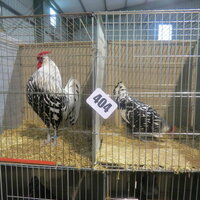
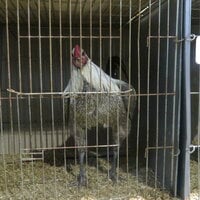
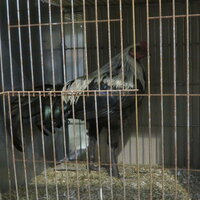
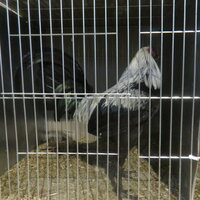
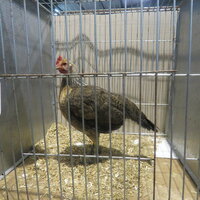
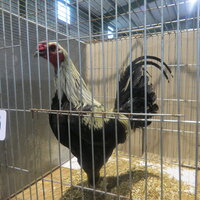

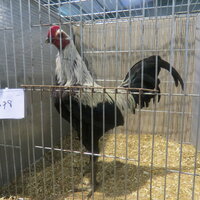
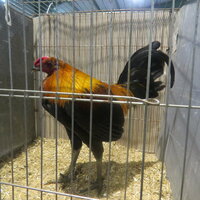

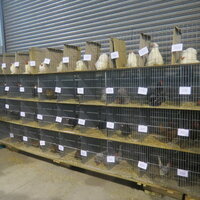

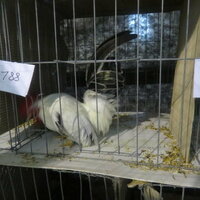
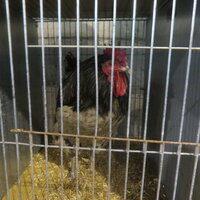

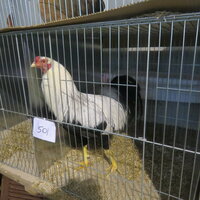

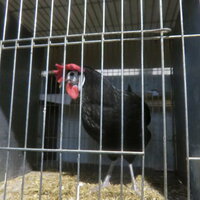
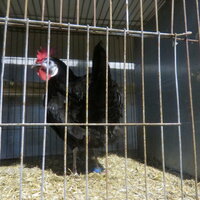

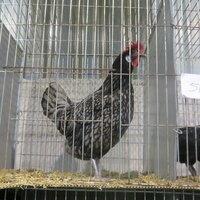
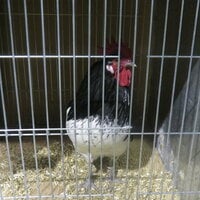
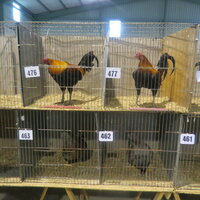
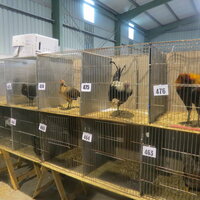
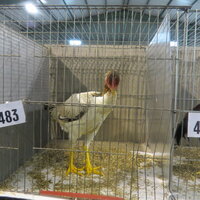
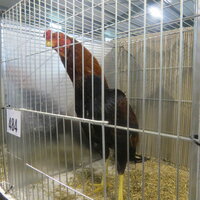
 We're too small!
We're too small! . Moved here last June from Illinois, USA and have been busy learning to live with metric
. Moved here last June from Illinois, USA and have been busy learning to live with metric  but the weather is a dream compared to the extremes I had back in Chicago. Just this week I finally collected most of the building supplies for my coop and run and hope to break ground once my sister visiting from the states heads back on Thursday. My current plan is to start with 6-8 POL pullets and a rooster. I am saving chick rearing for next year when I feel a bit more confident. Breeds....well that is TBD based on what is available when my coop is ready but I would love to find some pure bred ones as the ones sold at the local market all seem to be Rhode Island Red mixes.
but the weather is a dream compared to the extremes I had back in Chicago. Just this week I finally collected most of the building supplies for my coop and run and hope to break ground once my sister visiting from the states heads back on Thursday. My current plan is to start with 6-8 POL pullets and a rooster. I am saving chick rearing for next year when I feel a bit more confident. Breeds....well that is TBD based on what is available when my coop is ready but I would love to find some pure bred ones as the ones sold at the local market all seem to be Rhode Island Red mixes. ).
).